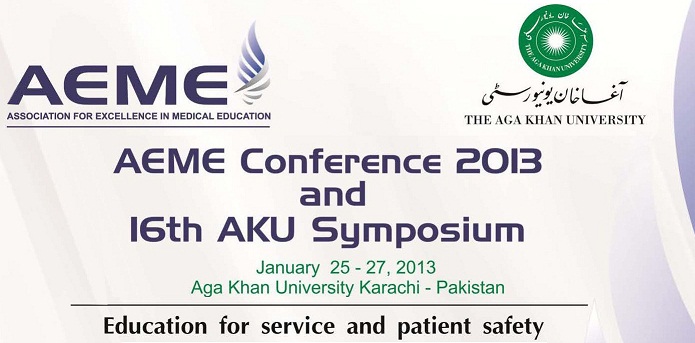Day 1 : Oral Presentations (Theme: Evaluation & Quality Assurance)
Nursing students experience of clinical practice: A theory practice gap
Location
Lecture Hall 1
Start Date
26-1-2013 11:10 AM
Abstract
Background: Nursing education is incomplete without incorporating exposure of clinical practice to nursing students as practice provides opportunity to student to relate theory with practice of caring for patients. However, the discrepancy and tension between nursing theory as it is taught in classroom and clinical practice as it is experienced by students in clinical setting is an area of concern and is subject of much debate within nursing education. This paper aims to investigate nursing students’ experience of clinical practice and will shed light on the issue of theory practice gap through the lens of nursing students. The findings of this study will also provide clinical teachers to understand meaningfully the experience of clinical practice as perceived by nursing students.
Method: Phenomenological approach was used to discuss lived clinical experience of nursing students with a special emphasis of theory practice gap. Data was gathered by Focus Group Discussion directed about their clinical practice with a special focus of theory practice gap. 40 nursing students of undergraduate and specialist diploma program were selected randomly and were arranged in 4 groups of ten students. FGD were tape-recorded, transcribed and data was analyzed that revealed four factors which contributes to theory practice gap significantly.
Result: All participants reported the existence of theory-practice gap and also shared its negative impact on their knowledge acquisition, retention and implementation. Majority of the study participants reported having difficulty in relating taught course to their practice. The study findings revealed four factors that contributed significantly in theory practice gap from the student’s point of view, lack of clarity regarding student role at clinical area that leads to initial clinical anxiety, insufficient collaboration between clinical nurse and faculty member, ambiguity regarding teacher role at clinical side and inadequately supervised clinical by faculty.
Conclusion: The result showed that nursing students were not satisfied with the clinical component of their education. As a result of theory practice gap they experience anxiety and feeling of incompetency. There is an imperative need of modifying approach to clinical practice that will facilitate students learning by bridging the gap between theory and practice.
Key words: theory practice gap, clinical practice, nursing students
Nursing students experience of clinical practice: A theory practice gap
Lecture Hall 1
Background: Nursing education is incomplete without incorporating exposure of clinical practice to nursing students as practice provides opportunity to student to relate theory with practice of caring for patients. However, the discrepancy and tension between nursing theory as it is taught in classroom and clinical practice as it is experienced by students in clinical setting is an area of concern and is subject of much debate within nursing education. This paper aims to investigate nursing students’ experience of clinical practice and will shed light on the issue of theory practice gap through the lens of nursing students. The findings of this study will also provide clinical teachers to understand meaningfully the experience of clinical practice as perceived by nursing students.
Method: Phenomenological approach was used to discuss lived clinical experience of nursing students with a special emphasis of theory practice gap. Data was gathered by Focus Group Discussion directed about their clinical practice with a special focus of theory practice gap. 40 nursing students of undergraduate and specialist diploma program were selected randomly and were arranged in 4 groups of ten students. FGD were tape-recorded, transcribed and data was analyzed that revealed four factors which contributes to theory practice gap significantly.
Result: All participants reported the existence of theory-practice gap and also shared its negative impact on their knowledge acquisition, retention and implementation. Majority of the study participants reported having difficulty in relating taught course to their practice. The study findings revealed four factors that contributed significantly in theory practice gap from the student’s point of view, lack of clarity regarding student role at clinical area that leads to initial clinical anxiety, insufficient collaboration between clinical nurse and faculty member, ambiguity regarding teacher role at clinical side and inadequately supervised clinical by faculty.
Conclusion: The result showed that nursing students were not satisfied with the clinical component of their education. As a result of theory practice gap they experience anxiety and feeling of incompetency. There is an imperative need of modifying approach to clinical practice that will facilitate students learning by bridging the gap between theory and practice.
Key words: theory practice gap, clinical practice, nursing students


